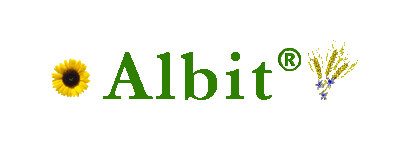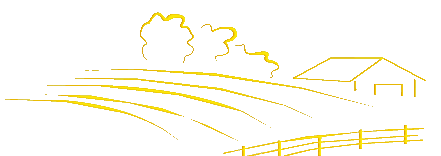|
|
These recommendations are based on 'The list of pesticides allowed for use in Russian Federation', regulations issued by The Institute of Plant Protection Russ. Acad. Agric. Sci., and other Russian authorities. Therefore, the recommendations are applicable in Russia only, and may be partially or entirely changed in other countries, depending on requirements of local laws and regulations.
Procedure of working solution preparation. Albit should be thoroughly shaken (mixed) before use. Albit is a high-concentrated biostimulant, therefore it is applied diluted with water (working solution). For example, presowing seed treatment of 1 tonne of grain requires 40 ml of the biostimulant diluted in 10-15 litres of water. To dilute, ¼ of necessary amount of water should be mixed with Albit in tank, and then the rest of water must be added. Treatment is performed in specialized seed treatment machines or manually. Working solution must be used out within 24 hours after preparation. To increase the effect of Albit, adjuvant (5-10% whey, Na-CMC, 0.2 kg/tonne of seeds) may be added to working solution. Presowing seed treatment, combination with fungicides. Before treatment with Albit, phytopathological examination of seeds must be carried out. Presowing seed treatment with Albit only can be performed if infestation of seeds with complex of diseases is not higher than 30% (low infestation level) and in absence of smut infections. In case of moderate infestation of seeds (up to 10% of internal and 30-50% of external infestation, 0.3-0.5% of loose smut infestation and up to 500 spores of stinking smut per grain) it is reasonable to use Albit with minimal recommended or with halved dose of chemical fungicide. In case of high infestation (more than 10% of internal and 50% of external infestation, 0.5-2% of loose smut infestation and 500-2500 spores of stinking smut per grain), seeds must be treated with combination of Albit and full dose of chemical fungicide. Addition of Albit to flutriafol-containing fungicides might accelerate ripening of cereals by 3-12 days, increase yield, and control of diseases during whole vegetation period. Albit should not be used on seeds that are pelleted or pre-treated with pesticides. Storage of treated seeds. Albit-treated seeds should be stored in dark, at temperature below +20°C, under ventilation. It is recommended to saw seeds within 24 hours after treatment (except sunflower seeds). Otherwise, Albit might be decomposed by native microbial community of seeds, that will result in loss of efficiency. Joint treatment of seeds with Albit and chemical fungicide can prolong storage period of treated seeds up to 1 month, since in that case chemical pesticide serves as a preservative for Albit. Results of seed treatment with Albit you can see in the following Chapter.
|
|
||||||||||||||||||||||||||||||||
Terms and Conditions
|
|


 Purpose. Presowing seed treatment of cereals
(wheat, rye, barley, oat, rice) with Albit provides plant protection against
root rots, stem helminthosporioses and other diseases, noticeably increases yield and yield
quality, total and productive tillering, germination and germination power
(up to 10-15%); improves mineral nutrients uptake, winter survivability (for winter crops),
heat, frost, moisture and drought resistance. Earlier and accelerated development of rootage
due to Albit treatments reduces susceptibility to root rots and diseases, and creates a basis
for high yield. Presowing seed treatment is crucial for sunflower, buckwheat, maize,
pea and other legumes. For example, disease protection of sunflower (against head
gray mould blight and watery soft rot) and pea (root rots) is almost completely attributed
to presowing seed treatments. Following foliar sprayings with Albit of cultures mentioned
above provides pronounced effect solely in case of preliminary seed treatment.
Purpose. Presowing seed treatment of cereals
(wheat, rye, barley, oat, rice) with Albit provides plant protection against
root rots, stem helminthosporioses and other diseases, noticeably increases yield and yield
quality, total and productive tillering, germination and germination power
(up to 10-15%); improves mineral nutrients uptake, winter survivability (for winter crops),
heat, frost, moisture and drought resistance. Earlier and accelerated development of rootage
due to Albit treatments reduces susceptibility to root rots and diseases, and creates a basis
for high yield. Presowing seed treatment is crucial for sunflower, buckwheat, maize,
pea and other legumes. For example, disease protection of sunflower (against head
gray mould blight and watery soft rot) and pea (root rots) is almost completely attributed
to presowing seed treatments. Following foliar sprayings with Albit of cultures mentioned
above provides pronounced effect solely in case of preliminary seed treatment.